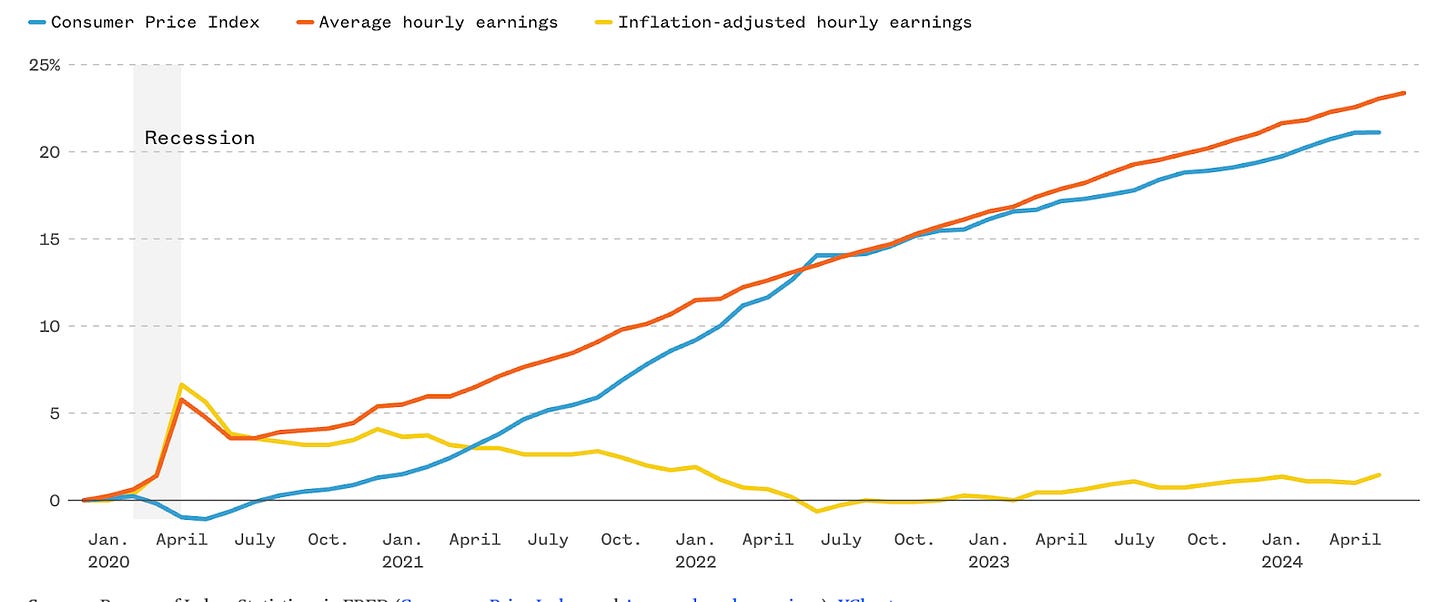long degeneracy
hypergambling eats the world
what is “long degeneracy”?
long degeneracy is a mental model, centered around hypergambling. in the author’s words, long degeneracy represents “a belief that the world will only get more degenerate, financialized, speculative, lonely, tribal and weird”.
the most concise and holistic explanation of this trend is:
as real returns compress, risk increases to compensate.
the reasons explored below are varied and intertwined, but hopefully after finishing this article you, the sophisticated reader, will return to this statement and nod wisely.
South Korea is the canary in the coal mine. it has high inequality and low social mobility - meaning once you’ve sorted to the wrong end, you’re stuck. this drives the insane cram school culture leading up to the high school CSAT - a test so important they literally close the country.
for those who do well, the prestigious national universities and a good life awaits.
for those who don’t, there is no recovery.
is it then any surprise that many of the world’s largest degenerates have been Korean? think of Bill Hwang, Masayoshi Son, and Do Kwon. when the traditional ladder is pulled up, the only way to increase the reward is through increasing risk == hypergambling. this future comes for everyone.
long degeneracy is your college friend sports betting. long degeneracy is your uncle trading options. long degeneracy is your participation in an online community instead of an irl one. these trends are modern efficiency applied to human nature - the shortest-term reward cycles.
forces like ai only accelerate long degeneracy - at its core there is an understanding that the time to “make it” is running out, and any new developments only shorten the clock.
and though one might be tempted to try and save the world with this knowledge, it is a very large ship headed for the rocks. it is far more practical to ensure you have a safe spot on a lifeboat than it is to turn the ship around.
ok, but what is hypergambling?
hypergambling is the high risk-taking behavior caused by fears of future financial insecurity.
but rather than try to properly define it, it is easier to explain how it feels:
imagine you are a new college grad from a middle class family.
if you are lucky you have no education debt, but many do. if you are lucky, you land a 100k+ job, but many don’t. and even if you are lucky you still look up at astronomical asset prices (houses, stocks) and try to work out how you can maybe afford one in 20 years. with the understanding that they will only continue to go up in the meantime.
you are surrounded by online examples of success (usually fake or survivorship bias). your attention span has been fried by tiktok and youtube shorts. you simply don’t have the patience or discipline for the slow path.
so instead, you start taking outsized risks with your monthly paychecks - crypto, options (pls no), meme stocks, meme coins, sports betting (pls no). your rationale is that this current amount could never buy a house, but if you win it might. and if you lose you simply have to wait a week or two before you can reload.
that is hypergambling, and if you participate in crypto with a significant percentage of your networth, congrats you are hypergambling too.
hypergambling came into public consciousness around covid. in january 2020 peter thiel wrote to mark zuckerberg, with the observation that:
“from the perspective of a broken generational contract, there seems to be a pretty straightforward answer to me, namely, that when one has too much student debt or if housing is too unaffordable, then one will have negative capital for a long time and/or find it very hard to start accumulating capital in the form of real estate”.
while he was talking about millennials being socialist, that is just the other side of the same coin. hypergambling is the emergent seethe, socialism is the cope.
the core issue here is the cost of owning a house, and the expected timeline on an average salary. with this core social contract broken, people look for shortcuts. crypto, memestocks, and the rise of option and leverage trading are examples of the public’s increasing desire for volatility and asymmetric upside when linear can’t buy a house.
the downside of taking repeated high risk investments is that many fail, and if you find yourself at the end of the tunnel with no diamonds to show for it you will be even farther behind.
the causes
inequality is the obvious theme, and present in many causes. but it is important to point out before going further - in the author’s view, the current trend is a return to historical norm. the modern concept of the middle class was borne out of the post-world war two boom and a global labor arbitrage. the classical definition of petit-bourgeois is specifically owners of business and capital. even knowledge workers are still part of the labor class. it is precisely this rage against the machine from a way of life that is being compressed that drives these issues.
income disparity
the key underlying factor is growing income to asset inequality. not the ratio of highest earners to lowest earners, but the relationship between wages and the cost of a house.
as this continues to worsen, it will only make the linear timeline - get a normal job, save up for a house - longer and longer, until it becomes completely untenable. this is an example of an expected return (“get a good job after college”) compressing, and this fundamentally drives the search for higher yield in the form of riskier investments.
rise of asset prices / the denominator is going to zero
housing prices, s&p 500 and bitcoin are at all time highs at the time of this post.
importantly, one can’t buy a fraction of a house - only throw money away renting (or live at home) while saving. in the worst-case, the asset prices continue to rise faster than one’s savings - unattainable forever. this fear of not “catching up” drives increased risk taking.
the other side of the coin of rising asset prices - the denominator is simply going to zero. the dollar is down 10% on the year so far. in a world where consumers continue to experience rapid inflation, how much savings is enough? and what can outpace future fiat inflation?
gambling/speculation deregulation
safety rules are written in blood, and despite being positioned to benefit from deregulation, this author views the mass-market gambling trend as anti-social.
with the proliferation of sports betting, prediction markets, online casinos, the invention of 0dte options, and the upcoming popularity of perpetual futures - the average consumer is a click away from entering the world of the degenerate.
this is not a good thing - most of us in crypto are only functioning because we happened to choose an asset class that goes up 10x every four years. but repeated high risk financial speculation fries one’s dopamine receptors and short-circuits the effort/reward relationship. “become unemployable” quite literally.
online dating
the rise of online dating doesn’t just contribute to the everyone loneliness epidemic.
it also shapes men’s worth, at least how the market perceives it. online dating is power law. the top percentile of men receive a disproportionate amount of interest. the broadly accepted way for a man to increase his market value is through wealth.
even sex is driving men to take higher risks.
note the inevitability of the causes. rising income inequality, rising asset prices, increasing speculation and online dating. these trends will only get stronger, and thus long degeneracy.
the short-term effects
crypto goes up. sports betting grows. buy now pay later grows. savings decrease. attention spans decrease. money is now numbers on a screen. discord is the new church. parasocial relationships replace real ones. birthrate falls. happiness falls. outcomes continue to separate into winners and losers. unemployment rises. neets rises. hikimoris rise.
the longterm effects
derivatives eat the world
whether perpetuals, binary options (prediction markets are a form of binary option) or a new instrument, the more retail gets access the more they will adopt, to the authors benefit and regret. but you can’t fight the market.
broken reward/effort models
traders are the worst employees imaginable. a trader’s work ethic is broken the moment of their first win - how can they be expected to put in 40 hours a week for a year to make the same numbers they just saw flash on their screen in 40 minutes.
worsening inequality
the net result of many people losing is the money increasingly flows to the winners. viciously, this exacerbates the cycle.
it is the author’s belief that if Unversal Basic Income is ever implemented, it will accelerate long degeneracy to new levels. live life as a stipend peon, or swing for elite status. after all, if you can simply try again next month, what’s the downside of speculating with this month’s check?
authors note:
this thesis has been my north star for almost a decade now. i credit my miraculous recoveries to an unwavering belief that “the world will only get more degenerate, financialized, speculative, lonely, tribal and weird”, expressed through owning equity in growing exchanges (once a casino). but i could have expressed this view in many ways - roblox is also at all time highs.
but never once did i recover by “digging more”, unless you consider any speculation digging. perps, memecoins, gambling are all generally -ev and if you continue to participate and lose money you are the yield. find ways to own pieces of the houses.










